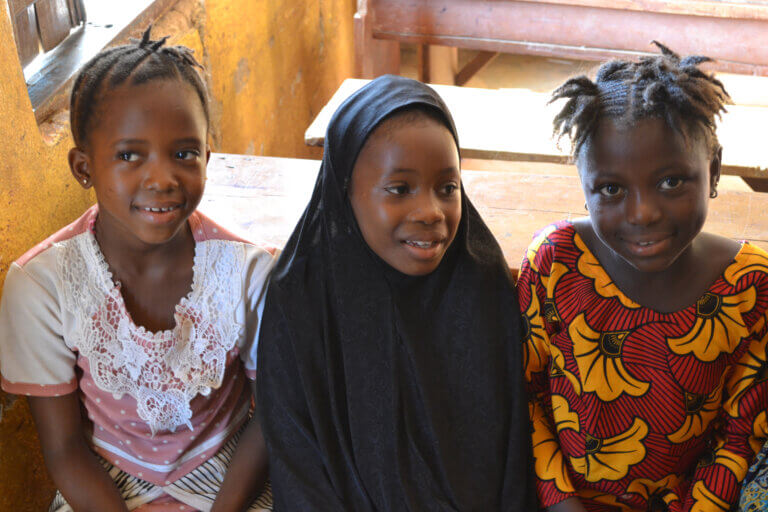
Child marriage is a human rights violation and manifestation of gender inequality. It disrupts girls’ education; increases their vulnerability to violence, discrimination, abuse, and death; and prevents their decision-making about their lives and their full participation in economic, political and social spheres. Despite legal prohibitions, child marriage persists in Sierra Leone due to entrenched social norms and poverty which is further exacerbated by the child marriage.
“Mi Small Wef” No More (“My Little Wife” No More) was an innovative approach to combat child marriage in Sierra Leone. In November 2020, CAUSE Canada and CAUSE Canada Sierra Leone Partnership (CCSLP) initiated an 11-month project with support from the Fund for Innovation and Transformation, the Inter-Council Network, the Government of Canada, and Canadian donors to eradicate child marriage in rural communities in the Koinadugu and Falaba Districts of Sierra Leone.
Traditionally, projects aimed at eliminating child marriage focus on the girl – for example, empowering her to not marry, sending her to school, or providing the family with funds to not marry their daughter. “Mi Small Wef” No More was innovative in that it aimed to eliminate the demand for child marriage by training influential community leaders as advocates against child marriage in their communities. The advocates educated men seeking or at risk of seeking child brides and girls’ families through home visits and sensitized community members through community engagement events.
The immediate results of the intervention were impressive, with a 92-95% reduction in child marriage rates. Changes were observed in men’s behavior, awareness, and knowledge, with a significant decrease in the number of bride price offers. Girls’ families also showed a willingness to reject bride price offers and community participation in eradicating child marriage increased, with greater awareness of its negative consequences.
One year after the intervention, interviews revealed that child marriage incidence remained low in the targeted communities. The decrease was attributed to increased knowledge, awareness of girls’ education, and community bylaws. Intermediaries were continuing to advocate against child marriage, support girls’ education, and intervene when marriages were planned. Families had shifted their decision-making in favor of education. However, ongoing risks still existed, primarily from men in neighboring communities and traditional beliefs.
Currently, 30% of girls in Sierra Leone continue to marry before 18 and 9% marry before 15, with higher rates in more rural and traditional regions particularly Koinadugu, Falaba, Tonkolili, and Kambia (GirlsNotBrides). In 2024, CAUSE Canada and CCSLP are seeking support to scale and replicate this innovation in these and other districts in Sierra Leone.
